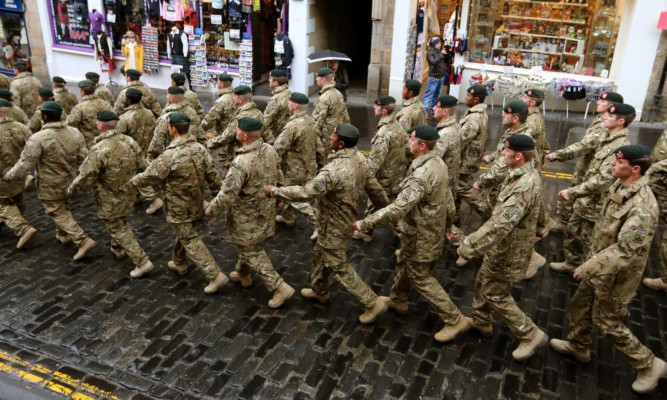Young British men are much more likely to commit violent crimes if they have served in the armed forces, a study has found.
Of around 3,000 military men under the age of 30, more than a fifth had a conviction for violent offences, compared with 6.7% of their civvie street peers.
There were strong links between combat experience, post-deployment alcohol misuse, traumatic stress and violence.
Men who had seen combat in Iraq and Afghanistan were 53% more likely to commit a violent offence than comrades given non-combat roles.
Those with multiple experiences of combat had a 70% to 80% greater risk of committing acts of violence.
In the biggest study of its kind ever undertaken, researchers were given access to police records on almost 14,000 randomly selected men and women who were active or former members of the armed forces, mostly the army.
Participants provided information about their experiences before and after joining the military and underwent psychological tests.
A search of the Police National Computer was made for any convictions, cautions or warnings relating to the study population.
Overall, 17% of the men had criminal records, and 11% had committed violent offences. Of the 2,728 aged 30 and younger, 20.6% had a criminal record for violence.
The findings, released on the 10th anniversary of the Iraq War, are published in a special issue of The Lancet medical journal.
